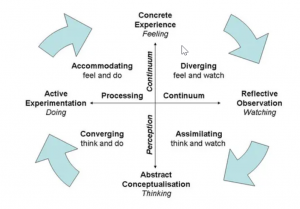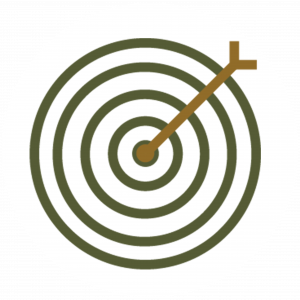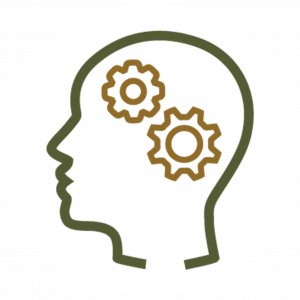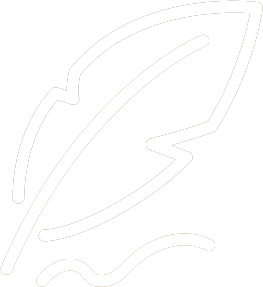Week 3: Personal Philosophy
LOC 3: Consolidate a personal philosophy to teaching
Learning Objectives
By the end of this week, participants will be able to:
- 3.1 – Respond to a learning philosophy by responding to the Zinn Inventory questions or an inventory of their choice
- 3.2 – Confirm and appraise their teaching philosophy to their everyday practice
- 3.3. – Explore why an adult educational philosophy is important to their practice
Materials Needed This Week
Here is a list of materials you will need while completing this week:
- Writing utensils
- Highlighters
- Ruler
- Sticky Notes
- Dictionary/Glossary booklet
- Handwritten Wisdom Journal

- Blank paper
- Computer/laptop
Key Terms
Add these key terms to your personal dictionary/glossary booklet. These important key terms will be used throughout module 1, week 3. If there is no link attached to the definition, be assured that the term will be defined throughout the week. We encourage you to further investigate the definitions in order to expand your knowledge.
- Personal Philosophy
- Experiential Learning
 Questions to Consider
Questions to Consider
1. Is an inventory of your personal philosophy necessary for your practice?
2. Why do we need to categorize our values?
3. What is your teaching (professional) philosophy?

“A democratic philosophy is characterized by a concern for the development of persons, a deep conviction as to the worth of every individual, and faith that people will make the right decisions for themselves if given the necessary information and support. It gives precedence to the growth of people over the accomplishment of things when these two values are in conflict. It emphasizes the release of human potential over the control of human behavior. In a truly democratic organization there is a spirit of mutual trust, an openness of communications, a general attitude of helpfulness and cooperation, and a willingness to accept responsibility, in contrast to paternalism, regimentation, restriction of information, suspicion, and enforced dependency on authority.
When applied to the organization of adult education, a democratic philosophy means that the learning activities will be based on the real needs and interests of the participants; that the policies will be determined by a group that is representative of all participants; and that there will be a maximum of participation by all members of the organization in sharing responsibility for making and carrying out decisions.”
— Malcolm S. Knowles, The Modern Practice of Adult Education: From Pedagogy to Andragogy (Revised and Updated) (1980).
 Review
Review
Consult the following resources and interpret the necessary information with your preferred method of note-taking.
Video: 8 Things To Know About the Experiential Learning Cycle (FULL) (8:07)
Video: On Kolb’s Learning Style Inventory, A Reflection – Assignment No. 2 – Adult Learning Fundamentals (5:31)
Click here for a video transcript in .docx format: Video Transcript
Kolb’s Learning Styles and Experiential Learning Cycle By Saul McLeod (article)
Kolb’s Experiential Learning Theory & Learning Styles By Dr. Serhat Kurt (article)

Kolb states that learning involves the acquisition of abstract concepts that can be applied flexibly in a range of situations. In Kolb’s theory, the impetus for the development of new concepts is provided by new experiences.
Complete or review the following test.
Kolb’s Learning Style Test (online test)
 Identify
Identify
Consult the following resources below to locate the important information on this week’s topic.
LabR Learning Resources: Philosophy of Adult Education (website and PDF)
Video: Learning styles & the importance of critical self-reflection | Tesia Marshik | TEDxUWLaCrosse (18:14)
Click here for a video transcript in .docx format: Video Transcript
 Develop
Develop
Pick a learning style inventory that best suits you and your teaching practice and follow the step-by-step instructions to complete the Questionnaire below in order to achieve a result of what kind of style suits your teaching practice.
PAEI Questionnaire online (website)
 Apply
Apply
Task
Create a poster board of your inventory to hang in your classroom in order to create a visual for you and your students to see.
Apply in the classroom:
1. Implement the poster board you created to illustrate the concept of the PAEI questionnaire to the students
2. Have your students complete the PAEI Questionnaire on paper (you can print the questionnaire questions from the online questionnaire’s website) and have a discussion on how they feel about their personalized inventory of their philosophy.
3. Have your students make their own posterboard of their inventory for the classroom and group the philosophies together for a visual of some commonalities amongst the students.
 Take Away Toolbox
Take Away Toolbox
- PAEI Questionnaire On-line (website)
 Reflect
Reflect
 Handwritten Wisdom Journal
Handwritten Wisdom Journal
A Wisdom Writing Journal is a way to notarize your learning journey throughout the weeks during all the modules in this course. It will also permit you to demonstrate that no technology is required to focus on reflective practice. There is a variety of writing journal tools that you can choose from that require technology, however, throughout this course, it is important that you experience and model a no-technology required method in order to relate to those students that have limited or no access to technology.
Take advantage of jotting down your thoughts, frustrations, joys, aha moments, and new information acquired as the result of your hard work. Critical reflection time required at the end of each week will be a culminating result of YOUR own personal Learning Narrative.
Using your own personal writing journal, write an entry for this week’s prompts:
- What’s your personal adult education philosophy?
- What did you learn about yourself and your practice by answering the questionnaire? What surprised you with the results?
- Why do you think that sharing the information that you have learned about yourself with your adult learners can be conducive to establishing relationships and ensure community building within your classroom?
- Based on the information that you have learned this week, how would you review, identify, develop, apply, and reflect?
Note: Be sure to justify each of your answers or comments.
Optional Resources
These resources are not required to be viewed; however, they give further information on this week’s topics:

